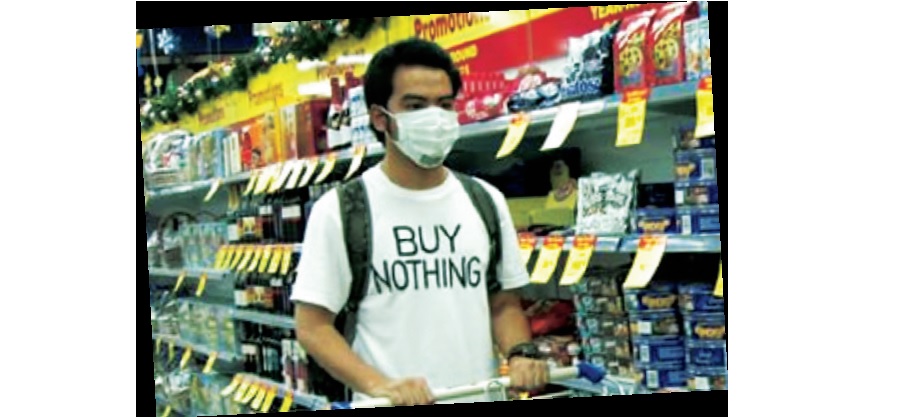Could you get through a day without spending a cent?
What do you think?
Is the following article related to
a) shopaholism;
b) environment; or
c) a healthy lifestyle?
FAQs about BND (Frequently Asked Questions about Buy Nothing Day)
1, What is Buy Nothing Day all about?
Buy Nothing Day (November 26, 2021) is a simple idea, a day when we are asked to switch off from shopping for a day. It’s a global demonstration against consumerism – celebrated as a holiday by some and a street party for others! Anyone can take part, provided1 they spend a day without spending!
2, Where did Buy Nothing Day come from?
Buy Nothing Day was started by a Canadian artist, Ted Dave, who became sick of how much money he was spending every day on junk food2, snacks and other small things that he bought under the influence of advertisements. Then the magazine Adbusters from Vancouver took over this initiative and it has grown into an international event celebrated all over the world.
3, What is so bad about shopping?
It’s not shopping in itself that’s so harmful; it’s what we buy. Imagine that rich countries – only 20% of the world population — are consuming over 80% of the earth’s natural resources and cause a lot of environmental damage and the unfair distribution of wealth. As consumers, we should question the products we buy and the companies who produce them. The idea is to make
people stop and think about what and how much they buy affects the environment and developing countries. Increasingly, large companies use labour in developing countries to produce goods because it is cheap, as there aren’t systems to protect workers like there are in the developed countries.
4, What about the environment?
Consumers are constantly forced to buy unnecessary packaging that the big stores and supermarkets produce. The raw materials and production methods that are used to make so many of our goods have harmful side effects such as toxic waste, destruction of wildlife, and wasted energy. The transport of food by air also contributes to pollution especially when much of the food can be produced locally. So the idea is also to persuade people to buy local food instead of imported stuff.
5, Who runs it?
You do – it’s your day – so get involved! Tell all your friends about Buy Nothing Day, put up posters and refuse to shop on the day. Have a party on that day, meet friends, go out for a picnic, have fun… Literally, doing nothing is doing something!
6, Why are there two different dates/ days?
In Canada and America, Buy Nothing Day falls on the Friday after Thanksgiving Day. That Friday is one of the busiest shopping days in the year. In Europe we hold our celebration on the last Saturday in November. We tend to shop more on Saturdays, so it makes sense.
7, What will I achieve?
It might be very challenging to endure3 24 hours without spending any money. You’ll feel detoxed from shopping and realise how much it uses up your free time. For 24 hours you’ll get your life back and that’s a big achievement! As the name suggests, it’s a day spent without spending, yet it’s also a day to hopefully think about how you spend, why you spend and what you can change.
Exercises
1. Are you always complaining that you have nothing to wear, but your closet is jam-packed full of clothes for every occasion? Do you buy items and then forget about them, only to find them under your bed with the price tags still on? If you answered “yes” to any one of the questions, you may just be a “shopaholic.”
What other words do you know with the suffi x –aholic or –oholic?
2. Here are some words that describe addictions:
addiction – to be addicted to – addict – addictive – to be (get) hooked on
to kick a habit – to overcome an addiction
Examples: Internet addiction is a problem. He is addicted to computer games. He is a real television addict. Gambling can become addictive. She is hooked on gambling. He smokes, but he wants to kick the habit. It is difficult to overcome an addiction.
3. Complete the sentences:
He‘s a webaholic. He tried to overcome this ………………………….., but it‘s hard to…………………….. the habit. I think she‘s a …………………….. . She seems ……………………..to chocolate. She is definitely a …………………………. . It is clear she is ………………………… on shopping.
Marta Jendeková
VOCABULARY:
1 za predpokladu, pod podmienkou – za předpokladu, pod podmínkou; 2 nezdravá strava; 3/indju:∂r/ vydržať – vydržet

